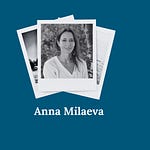How does it feel when you’re the wisest and kindest version of yourself? What impact does it have on you and others? What might your life look like if you could show up as this person more often — fully grounded in your potential, despite the challenges you face?
“All of us have an innate self that is wise and kind,” explained psychologist Dr. Tori Olds, co-founder of Deep Eddy Psychotherapy, when we interviewed her for this podcast. “We might call this our true self, or our higher self, or in Internal Family Systems we call it Self with a capital S. It is who we are when our brains are integrated and free.”
For example, Dr. Richard Schwartz, founder of the Internal Family Systems (IFS) model, spent over 40 years working with individuals from diverse backgrounds. Through his research and practice, Schwartz discovered that beneath the layers of our protective parts—such as anxiety, anger, or self-criticism—there exists a core Self. This Self, as he found, is not damaged or fractured, but inherently wise, compassionate, and calm. He realized that when people connect with this Self by becoming more mindful and curious about their thoughts, emotions, and behaviors, they drop their defenses. This connection enables them to approach themselves and others with greater calm, compassion, and confidence.
“At our core, we all have tremendous goodness and capacity,” explained Tori. “That's just the nature of the human mind.”
IFS catalogues these Self-leadership capacities as:
Calm: Being centered and grounded, even during stressful circumstances.
Curiosity: Being genuinely open to learning why you and others react the way they do.
Clarity: Maintaining a clear and undistorted view of situations and yourself, without projections and agenda.
Compassion: Seeing through challenging behavior to the pain that is driving it.
Creativity: Being free to realize creative potential, enjoyment, and exploration.
Confidence: Trusting that even if you have made mistakes, you are still good and worthy.
Courage: Facing fearful situations, standing up to things that are not right, speaking for yourself, and apologizing for any negative impact on other people.
Connectedness: Feeling a sense of interdependence with all the different parts of yourself, as well as external people and systems.
“Our Self-leadership capacities reflect a brain that is integrated,” said Tori. “In that moment of integration it's also a brain that frees us to be our true selves. It enables us to take in information from the world around us and within us, look at in fresh ways, and use our logic, emotions, and intuition to fully process the information so we can be respond in creative and flexible ways.”
“Unfortunately, the reason we don't always have access to those qualities is because we've overridden our natural state with conditioned ways of being,” cautioned Tori. “Growing up we've often been trained not to live from our true self, so we need to re-discover our capacities for Self-leadership.”
How are you re-discovering your true Self capacities?
For more on Tori’s wonderful work visit https://www.youtube.com/@DrToriOlds.
Please note: We are mindful that ‘girl’ and ‘woman’ are socially constructed ideas of gender that can fall painfully short of defining the fabulous complexity of who we each are. If these words resonate with part of how you have previously or currently identified yourself, we’d love to hear about your lived experiences.














Share this post